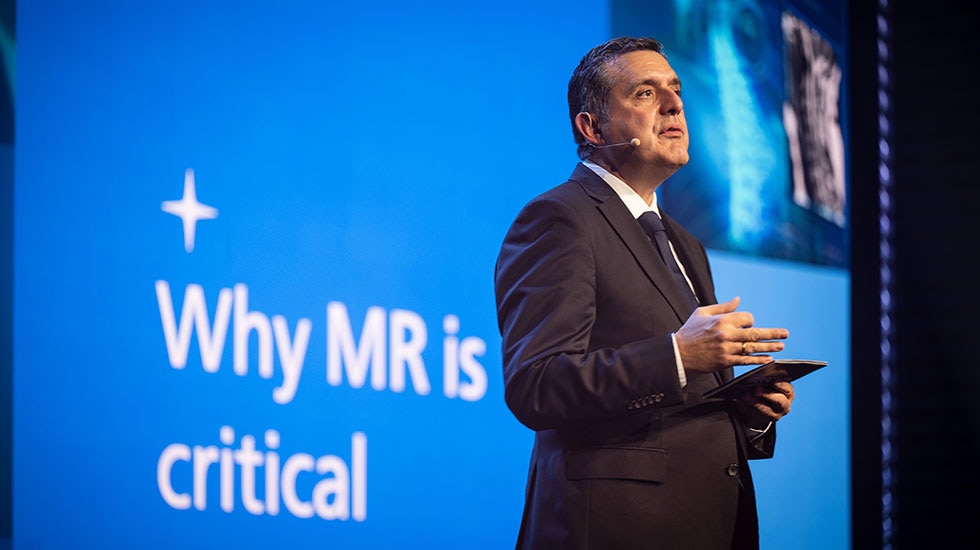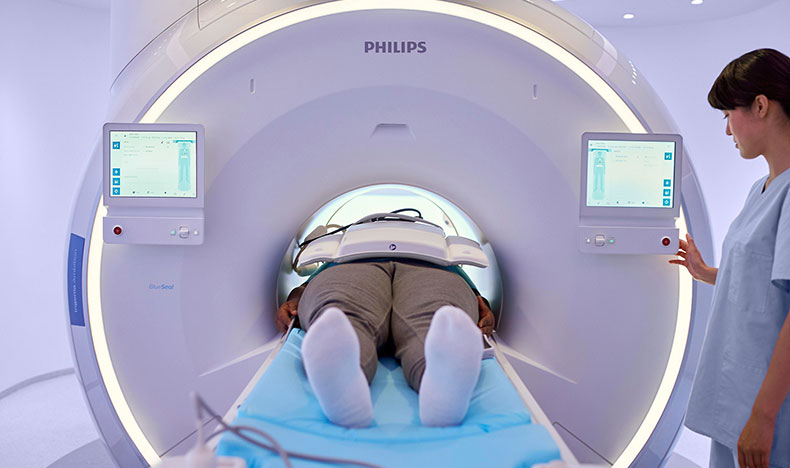Philips drives further development of radio frequency technology as part of Dutch National Growth Fund project Polaris
Feb 20, 2025 | 2 minute read
In January 2025 the Dutch National Growth Fund project Polaris started. The objective of the project is to strengthen the development and production of radio frequency (RF) technology in the Netherlands. The project has received 101.7 million euros in funding and is a collaboration between the Dutch government and the Polaris consortium of companies and universities, and connects three high tech sectors together: radar, MRI and telecommunication. Philips is part of this consortium.

RF technology is used by Philips in MRI scanners to transmit and receive radio signals during a MR-scan. The received signals are converted into digital data to create images. Further development of RF technology can contribute to faster and more accurate MRI scans for quicker and better diagnoses, allowing more patients to receive better care each day. The Polaris Consortium brings together different industries using RF technology.
“The Netherlands is a leader in RF technology with a strong ecosystem of partners developing and applying the technology in their products,” said Ioannis Panagiotelis, PhD, General Manager MR at Philips. “The investment from the National Growth Fund makes it possible to further develop breakthrough RF technology and ensures closer collaboration between different industries. We can learn a lot from each other about RF technology, drive innovation and improve its application. For Philips further development of RF technology can accelerate image acquisition and reconstruction and further improve the quality of images, potentially at a lower cost. This will allow radiologists to make faster and better diagnoses for patients.”
The Polaris consortium has signed an eight-year contract with the Dutch government. This contract, part of the National Growth Fund, marks a milestone in the collaboration between government, industry and knowledge organizations in the field of RF technology and offers new opportunities for technological innovation, economic growth and employment.
“The National Growth Fund's Polaris program underscores the strength of the Dutch high-tech ecosystem,” said Mark van Helvoort, Polaris program line manager Ecosystem on behalf of Philips. “The focus on low-volume, high-value manufacturing is an important asset to the Dutch industrial base and ensures a robust and sustainable ecosystem of cooperation for years to come. It is inspiring to see how sectors in healthcare, defense, telecommunications and semiconductors are joining forces in this very ambitious program.”
The Dutch Ministry of Defense is the sponsor of the project, with Thales Netherlands serving as the consortium's lead partner. In addition to Philips and Thales, NXP and a number of other high-tech companies such as Altum RF, Bronkhorst and Neways are involved. There is close partnership with leading universities such as the University of Twente, TU Delft and TU Eindhoven. Renowned research institutions such as TNO and CITC are also involved in the program. Finally, regional development companies Oost NL and BOM play a crucial role in translating innovations into economic opportunities for companies and regions.








